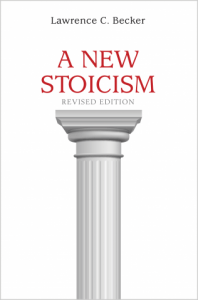Cognitive ontology, a domain concerned with the classification and organization of mental phenomena, plays a crucial role in understanding the structure and function of the mind. Within this framework, episodic memory is a fascinating subject due to its unique characteristics and implications for human cognition. As a distinct type of memory, episodic memory allows individuals to recall specific events from their personal past, characterized by a sense of time and place, and often accompanied by the emotional context of the experience. This exploration into the cognitive ontology of episodic memory sheds light on its significance, operational mechanisms, and its distinction from other forms of memory.
Defining Episodic Memory
Episodic memory, first proposed by Endel Tulving in the 1970s, is part of a broader classification that includes semantic memory and procedural memory. It is defined by its capacity for “mental time travel” — the ability to recollect not just what happened but also where and when it happened, offering a subjective experience of the event. This contrasts with semantic memory, which involves facts and general knowledge devoid of personal context, and procedural memory, which pertains to skills and how to perform tasks.
Operational Mechanisms
The operational mechanisms of episodic memory involve complex cognitive processes, including encoding, storage, and retrieval:
- Encoding: This phase involves the initial processing and combination of sensory input, emotions, and a spatial-temporal context into a cohesive memory trace.
- Storage: Once encoded, these memory traces are stored across various brain regions. The hippocampus plays a crucial role in this process, acting as a sort of index that links different aspects of a memory scattered across the cortex.
- Retrieval: Retrieving an episodic memory involves reactivating the neural networks that represent the encoded memory trace, allowing the individual to re-experience the event subjectively.
Significance in Cognitive Ontology
The inclusion of episodic memory within cognitive ontology emphasizes the importance of time, subjective experience, and self in human cognition. Episodic memory’s ability to integrate information across these dimensions provides a rich, multidimensional perspective on past events, contributing to complex human capabilities such as empathy, problem-solving, and creativity. It also underscores the interconnectedness of memory with other cognitive processes, such as perception, attention, and emotion, highlighting the integrated nature of cognitive systems.
Distinction from Other Memory Types
The distinction of episodic memory from semantic and procedural memory in cognitive ontology is crucial for several reasons:
- Functional Specialization: By delineating episodic memory as a distinct type, researchers can explore its specific contributions to human cognition, including how it supports learning, decision-making, and social interactions.
- Neurobiological Underpinnings: Understanding episodic memory’s unique characteristics allows for more targeted investigations into its neurobiological foundations, contributing to our knowledge of brain regions like the hippocampus and prefrontal cortex in memory processes.
- Clinical Implications: Distinguishing between memory types is essential for diagnosing and treating memory-related disorders. For example, individuals with Alzheimer’s disease often exhibit early deficits in episodic memory, while other types of memory may remain relatively intact in the initial stages.
Challenges and Future Directions
One challenge in the cognitive ontology of episodic memory lies in its subjective nature, making it difficult to objectively measure and study. Additionally, the boundaries between episodic, semantic, and procedural memory can sometimes blur, as when episodic memories become so well integrated into one’s knowledge base that they lose their specific spatial-temporal context, transitioning into semantic memory.
Future research in cognitive ontology and episodic memory may focus on elucidating these boundaries further, exploring the transition processes between different types of memory, and investigating how episodic memory contributes to complex cognitive functions like imagination and future planning. Advances in neuroimaging and computational modeling offer promising tools for addressing these challenges, providing deeper insights into the intricate tapestry of human memory and cognition.



